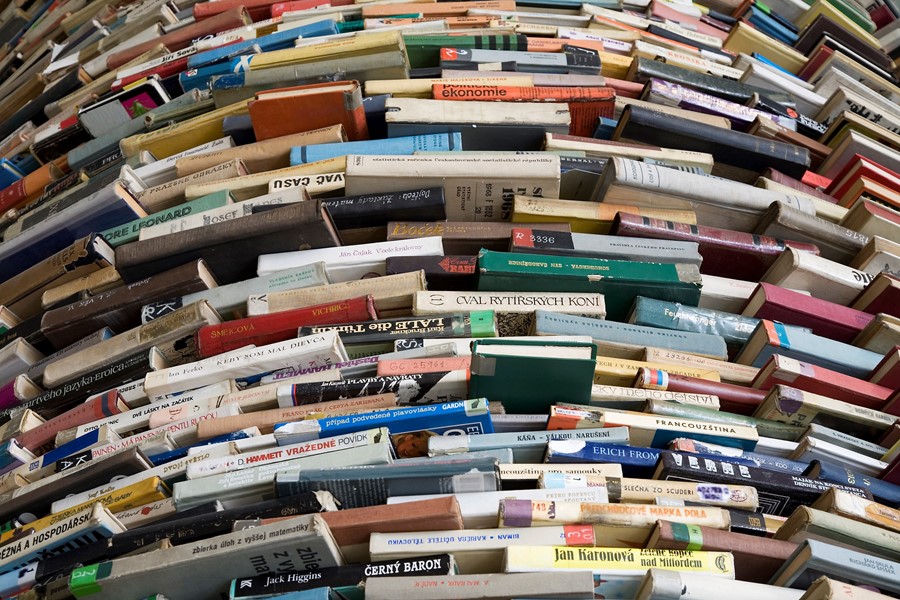AnOthermag.com’s book columnist, Ana Kinsella, asks why we buy certain books and what it means if we don’t end up finishing them
I recently moved house, something that inevitably involves running a painful audit on everything you’ve ever bought or otherwise acquired. One evening last week I found myself sitting on the floor of the living room, surrounded by every single book I own. Hardbacks, cookbooks, review copies, art books all looked accusingly at me. I tried to focus on the particulars of packing: How many boxes will this require? Does our household really need two copies of Infinite Jest? But beneath the hands-on, practical questions lay one that felt more existential. What was I going to do about this pile – the books I haven’t quite managed to finish (or even start) yet? There is a question I needed to answer before I could book the movers: in my next home, will I finally be the kind of person who sits down and reads Thomas Piketty’s Capital? [Author’s note: No]
Books seemed to accumulate in every corner of the old flat. Unread books proliferated in corners, almost as though they were multiplying of their own accord, their spines unbroken and pages unturned. How had I managed to acquire so many books? I could barely remember buying Portnoy’s Complaint or Rabbit Redux, and figure I must have done so in a sort of fugue state induced by hours spent browsing in Foyles. An unread book can be a locus of shame, a symbol of abandoned plans and changed priorities. But maybe it doesn’t need to be.
I have often thought that when we buy items of clothing, we are doing so often for the person we wish we were, rather than the person we really know ourselves to be. I now think that the same can be said of books, particularly the books that don’t end up read.
Maybe you bought A Little Life by Hanya Yanagihara because it looked weighty and stylish and smart – and then found it too upsetting to get past page 100. Or maybe celebrities on the internet led you to believe Chris Kraus’s I Love Dick is a light-hearted and witty romp through millennial relationships. Whoops! Maybe you picked up Eimear McBride’s A Girl is a Half-formed Thing and thought I too have felt like a half-formed thing, but found yourself stumped by the narration and dark subject matter. These are all books I loved, but what I mean to say is that it’s okay if you didn’t feel the same. We buy books with the best of intentions, and reading is always a process of trial and error. Sometimes I leave a bookshop with a pile of promising-looking new novels under my arm, only to arrive home and realise that what I intended to buy was not more books, but more time to read books.
And time is always at short supply. Why should you spend yours finishing books purely out of a sense of obligation? Why not spend your time reading things that really appeal to you instead? The stacks of unread books that piled up in my old flat were not just overly hyped memoirs and middle-of-the-road male novels. They were a harsh reminder of life’s brevity. I found myself remembering being 19 and sitting in a tutorial with my English literature lecturer, who told our group that loving reading would eventually force you to brush up against your own mortality, since none of us would live long enough to read every book we wanted to. This was galling news to my 19-year-old ears. 19-year-olds hate to be reminded that they will one day die, particularly when they’re trying to think purely about books instead! But it’s true, and it’s something that stuck with me, particularly when faced with a flat that needs to be packed up. We are given only one brief spell here in the universe. What will you spend your time reading?
Here’s what I’ve been reading lately:
Open City by Teju Cole, a meandering stroll through post-colonial New York.
Sing, Unburied, Sing by Jesmyn Ward, a devastatingly good modern-day road trip in the vein of William Faulkner.
The Incendiaries by R.O. Kwon, an explosive campus novel that takes in cults, domestic terrorism and romantic obsession.
